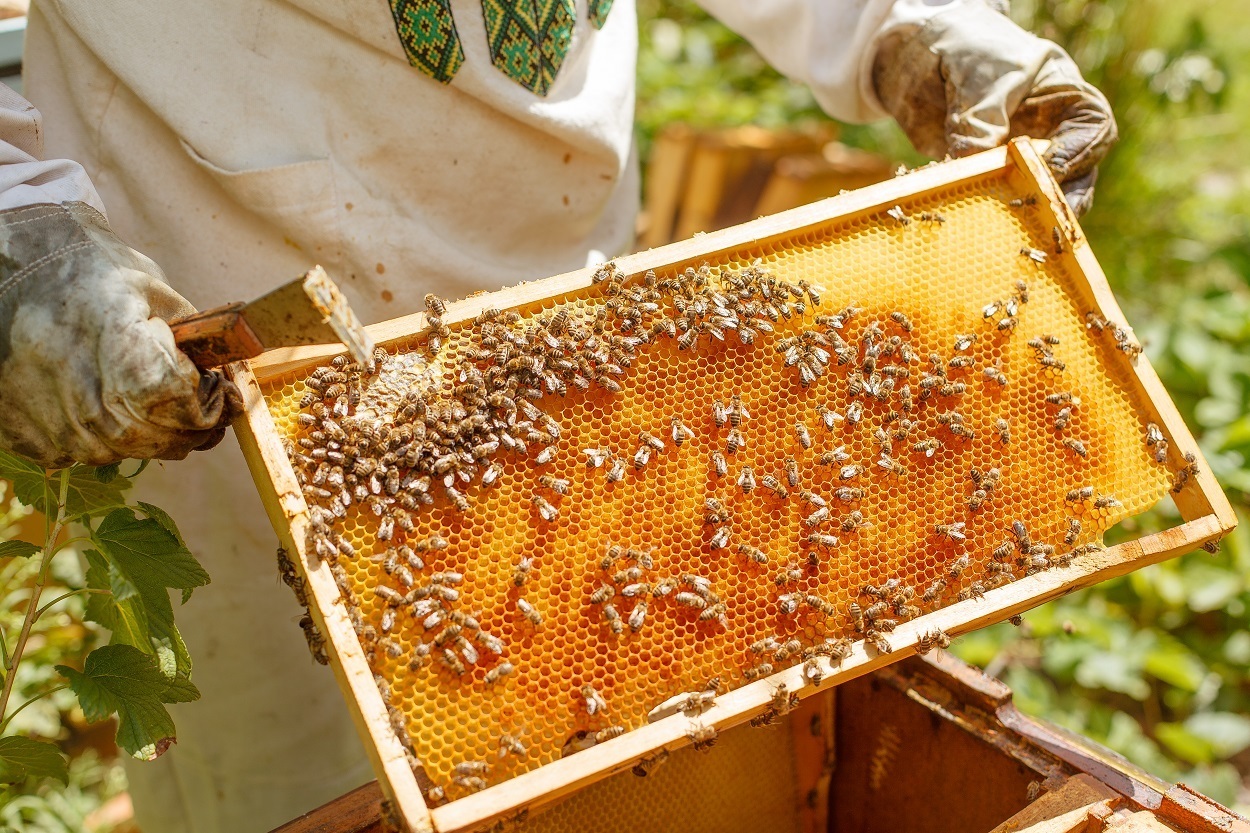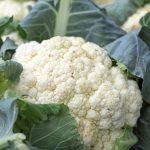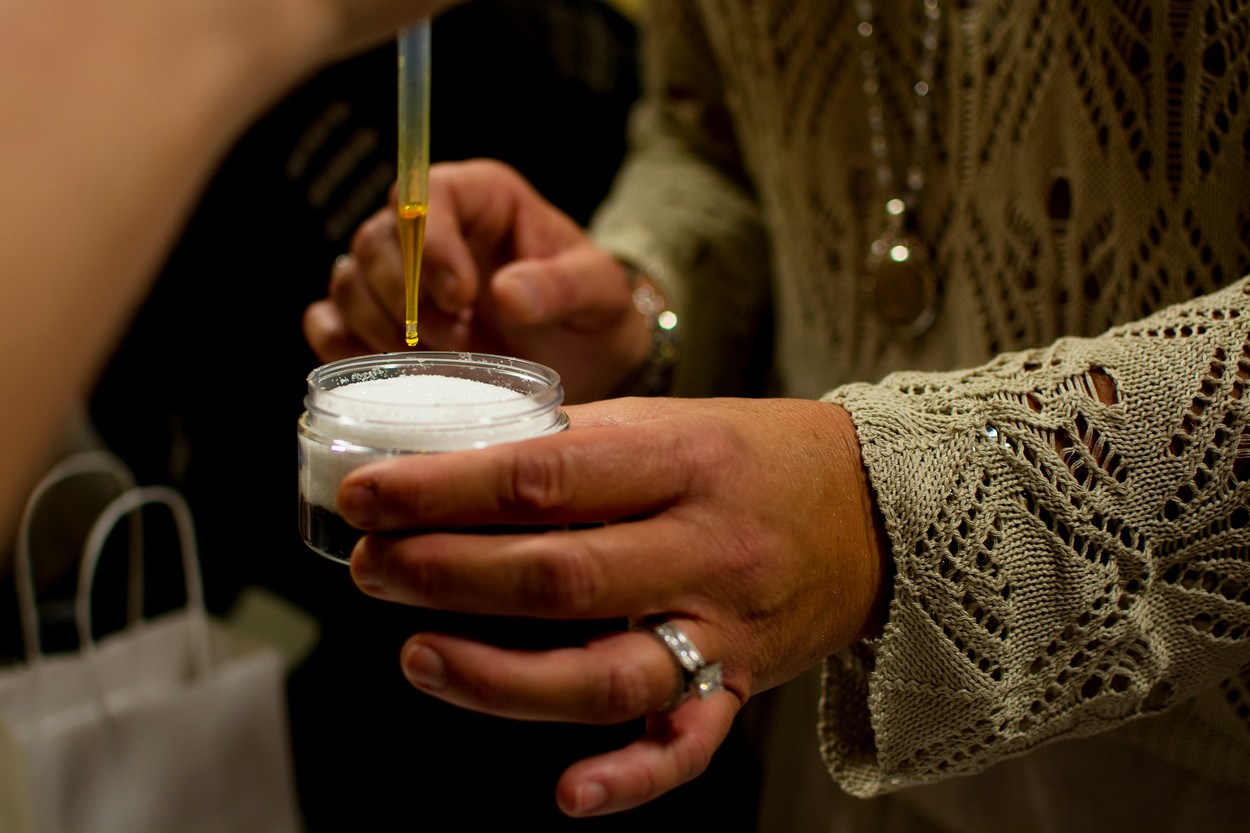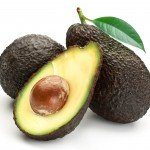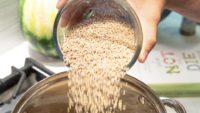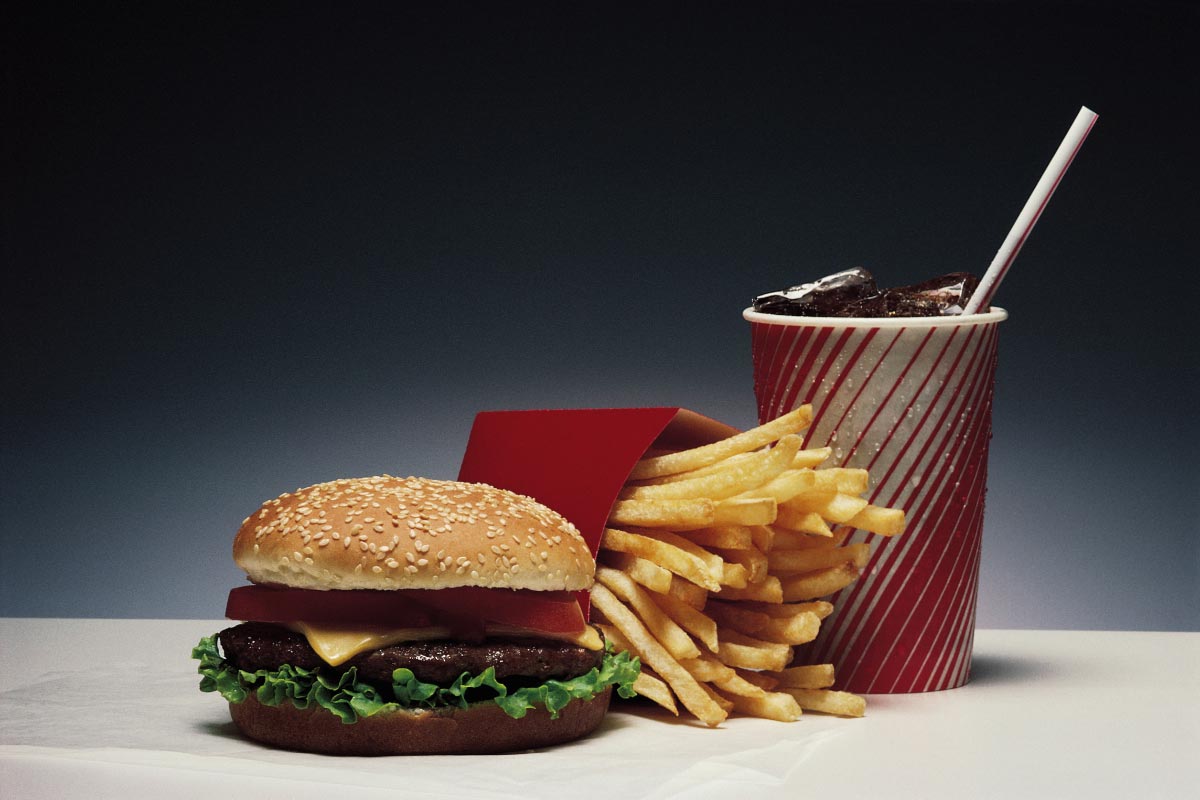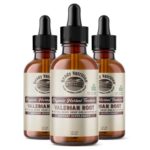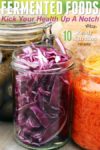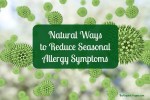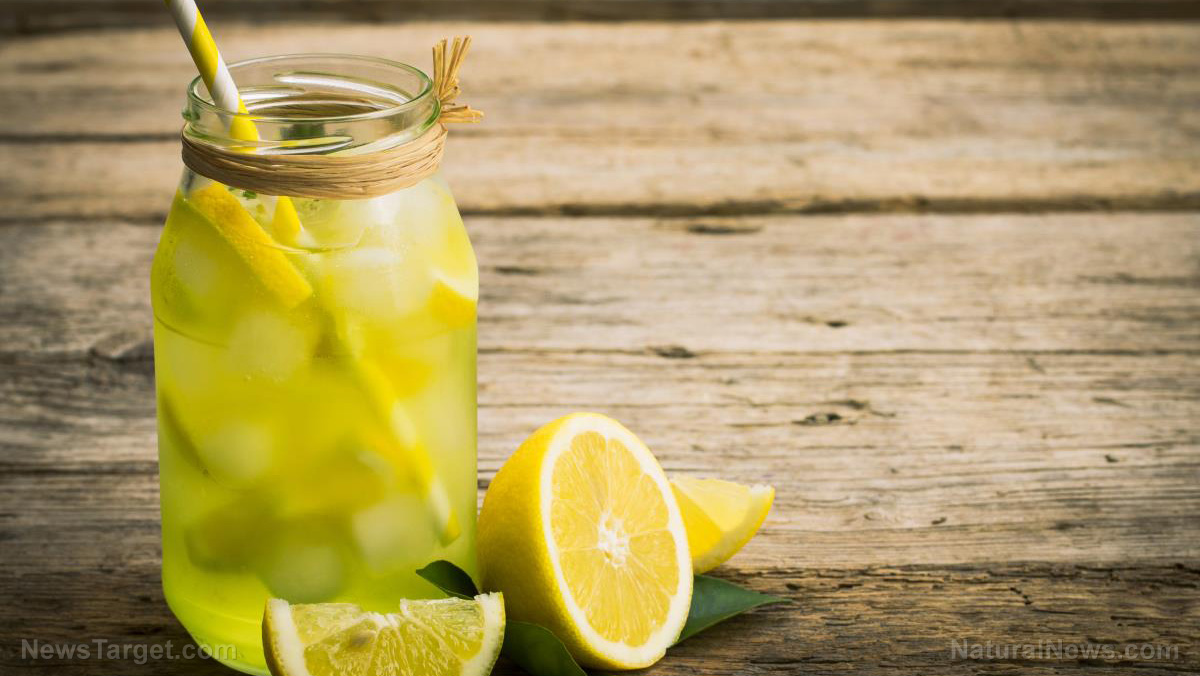By Mike Barrett Taking antibiotics for kidney stones is probably a bad idea. A review of almost 300,000 patient records from the United Kingdom (UK) revealed higher rates of kidney stones in people who took 5 categories of oral antibiotics, including broad-spectrum penicillins and fluoroquinolones, which include Cipro. [1] Broad-spectrum penicillins are antibiotics containing both penicillin and another active ingredient. The study doesn’t prove that antibiotics cause kidney stones, but that would be a logical assumption to make based on previously-published studies. The findings of the review were concerning enough that pediatric urologist Gregory E. Tasian said that he would [More]
By Lydia Noyes If you’re considering ways to become more self-sufficient, you’ve likely looked at the reasons to raise bees. Harvesting your own backyard honey sounds like a homesteading dream come true, but is it worth it to start this hobby for yourself? Should you sink some money into a set of hives? This article will walk you through many of the rewards of raising bees and give you suggestions for how to get started. Why Raise Bees? There’s never been a better time …read more Source: Natural Living Ideas
By Sara Middleton, staff writer (NaturalHealth365) Vegetables certainly get a bad rap – at least around children. But many kids are at least able to let their imagination help them enjoy a veggie side like broccoli or cauliflower, which look like miniature trees. Pretending to be a giant while eating dinner? Why not! Of course, even if you don’t have any veggie-resistant children in your family, it’s still a great idea to get creative with cauliflower. This incredibly healthy vegetable has so many health benefits and can be eaten in so many ways that it may just become your …read [More]
By Julie Fidler In the past 3 years, Monsanto’s (now Bayer) genetically modified soybean seeds have dominated 60% to 70% of the market. The Xtend soybeans bring in about $1 billion a year for Bayer, which acquired Monsanto in June 2018. But sales of the seeds are being driven by fear, and that fear has birthed an anti-trust lawsuit against the agrochemical giant. Xtend soybeans have been genetically altered to withstand an herbicide called dicamba. The weed-killer has been around for decades, but it poses a problem for farmers because it typically kills non-gmo soybeans. Farmers who plant Xtend seeds, [More]
By Dena Schmidt, staff writer (NaturalHealth365) Reducing the risk of hip fractures is easier than you might think, according to a Framingham Osteoporosis Study. You can enhance bone health by taking a vitamin you should be taking anyway: vitamin C. This finding comes out of a 17 year follow-up of the Framingham Osteoporosis Study. And, the message is quite clear: those taking the highest amounts of vitamin C showed a hip fracture rate that was significantly lower than those taking the least of this powerful antioxidant. The threat of hip fractures get dramatically reduced with a simple change to lifestyle [More]
By Sharon Falsetto Today’s store-bought beauty products often contain a myriad of ingredients, many of which might be synthetic in nature. Although these types of products often have a need of preservatives, in addition to other ingredients, due to their anticipated store shelf life, it is just as easy (and more natural) to make your own beauty products with essential oils at home. The aromatherapy product recipes in this article don’t contain preservatives but they should last the recommended time if you use quality ingredients, practice good hygiene (in both making and using the products) and follow the guidelines of [More]
By Michael By John Vibes The abortion debate is once again taking center stage in US politics, and the prospect of artificial wombs is slowly becoming a part of the conversation, as the technology is actually… …read more Source: Natural Blaze
By Dr. Mercola While there are many environmental and human health hazards associated with modern food production, perhaps one of the most pressing concerns for any given individual is the ever-rising risk of food poisoning. According to preliminary data from the CDC, there were 25,606 foodborne infections, 5,893 hospitalizations and 120 deaths from food poisoning in 2018.1 In 2017, there were 24,484 infections, 5,677 hospitalization and 122 deaths.2 For further comparison, between the years of 2009 and 2015 — a span of six years — there were 5,760 reported foodborne outbreaks resulting in 100,939 illnesses, 5,699 hospitalizations and 145 deaths.3 [More]
By Dena Schmidt, staff writer (NaturalHealth365) You love avocados as a sandwich garnish or mashed in guacamole at your favorite Mexican restaurant, but this little green superfood is so much more than just a dip or a garnish. Avocados are loaded with nutrients – which offer profound health benefits. In fact, a study published by the Journal of the American Heart Association has shown that eating avocado daily can help keep ‘bad’ cholesterol levels under control. Although, if you want to avoid confusion over the ‘real’ risk posed by cholesterol – read “Cholesterol: An unjustified bad rap”, which was …read [More]
By Mike Barrett Good news vegetable-lovers: research shows that vegetables like kale, cabbage, and broccoli contain chemicals that may prevent colon cancer. [1] When mice were fed a diet containing a chemical found in the brassica family of vegetables – including broccoli, cabbage, collards, Brussels sprouts, cauliflower, kale, kohlrabi, swede, turnip, bok choi, and mizuna – scientists realized the animals were less likely to develop inflammation and colon cancer. [1] [2] Colon cancer is the third most common form of cancer in men and women. The American Cancer Society estimates that there will be more than 97,000 new cases diagnosed [More]
By none Table of Contents What Is Banana Tea? Does Banana Tea Really Offer Sleep-Boosting Benefits? Banana Tea Caffeine Content How to Make Banana Tea Banana Tea’s Potential Side Effects There Are Other Effective Strategies for Getting a Good Night’s Sleep Owing to its low cost, delicious taste and nifty, self-protective “packaging,” it’s completely understandable why banana is one of the most popular fruits all over the world. It’s a nutritious snack that’s bursting with fiber, potassium and other standout minerals,1 hence making it a well-loved food by adults and children alike. But while most people love bananas because …read [More]
By Lori Alton, staff writer (NaturalHealth365) Sleep disorders are affecting millions of people and Western medicine wants us to believe that the ‘solution’ is the need for unwanted (toxic) medications? Well, any reasonable person can see that drugs are not the answer – as the CDC reports that about one third of all U.S. adults are not getting adequate sleep, each night. And, that’s probably an understatement! Anyway, with sleep disorders becoming a growing epidemic – throughout the world – there are several reasons why people would suffer with this serious health issue. Unfortunately, too many people …read more Source: [More]
By Michael Greger M.D. FACLM The remarkable impact of the structure of food beyond nutritional content or composition. …read more Source: nutritionfacts.org
By Ralph Flores (Natural News) Researchers from the University College …read more Source: Natural News
By Dr. Mercola If you have trouble sleeping, you’re not alone. According to SleepHealth.org, 70% of American adults say they get insufficient sleep at least one night per month, and 11% struggle to get sufficient sleep on a nightly basis.1 As noted by this organization: “Sleepiness affects vigilance, reaction times, learning abilities, alertness, mood, hand-eye coordination, and the accuracy of short-term memory. Sleepiness has been identified as the cause of a growing number of on-the-job accidents, automobile crashes and multi-model transportation tragedies.” However, reaching for a sleeping pill may be just as dangerous as …read more Source: mercola
The “blue light” in LED lighting can damage the eye’s retina and disturb natural sleep rhythms, France’s government-run health watchdog said this week. New findings confirm earlier concerns that “exposure to an intense and powerful [LED] light is ‘photo-toxic’ and can lead to irreversible loss of retinal cells and diminished sharpness of vision,” the French Agency for Food, Environmental and Occupational Health & Safety (ANSES) warned in a statement. The agency recommended in a 400-page report that the maximum limit for acute exposure be revised, even if such levels are rarely met in home or work environments. The report distinguished [More]
By Edsel Cook (Natural News) A Chinese man had the …read more Source: Natural News
By Julie Fidler French fries aren’t very healthy, and that probably doesn’t come as much of a shock to you. But even more than unhealthy, eating the deep-fried taters at least twice a week was linked with an increased risk of early death. [1] Over an 8-year period, a study published in the American Journal of Clinical Nutrition tracked the French fry consumption of 4,400 men and women, ages 45 to 79. At the end of the study, 236 of the participants had died. [2] After adjusting for several factors, eating potatoes – even gorging on them – was not [More]
By Sara Tipton We all could use some relaxation and calm in our ever-stressful lives. Several herbs promote deep relaxation, but none quite like an herbal tincture with “nature’s Valium,” valerian root. Herbal tinctures are gaining in popularity thanks to their safety in comparison to pharmaceutical drugs. If you are looking for an easy way to reap the benefits of medicinal plants, take a look at herbal tinctures. A [herbal] tincture is a concentrated liquid herbal extract made from herbs that are taken orally. Tinctures are typically made by soaking herbs in alcohol for several weeks to extract the active [More]
By Dr. Mercola Table of Contents Purslane’s Many Health Benefits What Is Purslane Used For? How to Grow Purslane How to Eat Purslane Purslane Recipes You Should Try The purslane plant (Portulaca Oleracea) is one of those herbs that sometimes you just can’t decide whether to keep or remove from your garden. It’s often viewed as unwelcome because it pops up beside plants you want to showcase or eat. Purslane has become so widespread in gardens1 today that the U.S. Department of Agriculture has branded it a noxious weed.2 Purslane, which may reach up to 30 centimeters …read more Source: [More]
By Lisa Egan Fermented foods like kimchi, kefir, and kombucha are widely available and wildly popular these days. There are good reasons for that – they provide some impressive health benefits. Fermentation originated as a food preservation method and means to produce alcohol. The earliest record of fermentation dates back thousands of years, and nearly every civilization has included at least one fermented food in its culinary heritage. Bread, beer, Indian chutneys, miso, sauerkraut, yogurt, cheese, sour cream, soy sauce, pickles, and even chocolate are some examples of fermented foods that people …read more Source: Ready Nutrition
By Dagny Taggart By Dagny Taggart Itchy, watery eyes. Stuffy nose. Or, a runny nose. Scratchy throat. Fatigue. Facial pain. Postnasal drip with a side of coughing. All of those symptoms are signs … Read the rest The post Natural Ways to Reduce Seasonal Allergy Symptoms appeared first on The Organic Prepper. …read more Source: Organic Prepper
By Dr. Mercola Obesity rates have tripled worldwide since 1975, and as of 2016, 39% of adults were overweight while 13% were obese.1 Associated health risks like heart disease and diabetes are well known, but many aren’t aware that your brain may also be affected by obesity. Rates of neurodegenerative disorders, including dementia, are also on the rise, with an estimated 115 million people expected to be living with dementia by 2050.2 It’s possible that rising rates of obesity may be one driving force behind this growing burden — and one that’s largely preventable at that. Obesity May Shrink Your [More]
Children are far more vulnerable to the damaging effects of electromagnetic fields than we are. Your child’s brain absorbs two to three times as many EMFs as yours, and sources of exposure are everywhere. What can you do? Is your child’s favorite pastime screen time? Are you concerned about how much cumulative exposure your kids have to electromagnetic radiation at home and at school from computers, cell phones, tablets, electronic toys, cell towers, power lines and the like? If not, you should be! Children are more vulnerable than adults to the effects of EMF (electromagnetic frequencies or fields) for a [More]
By Jeff By Jacqueline Mitchell Your mother was right; broccoli is good for you. Long associated with decreased risk of cancer, broccoli and other cruciferous vegetables – the family of plants that also… …read more Source: Natural Blaze
By Jeff Sales hit a record $52.5 billion as organic becomes mainstream, says Organic Trade Association survey Clean, transparent, fresh, sustainable. Environmentally friendly, animal humane, high quality,… …read more Source: Natural Blaze
By Edsel Cook (Natural News) Taking a glass or two …read more Source: Natural News


















